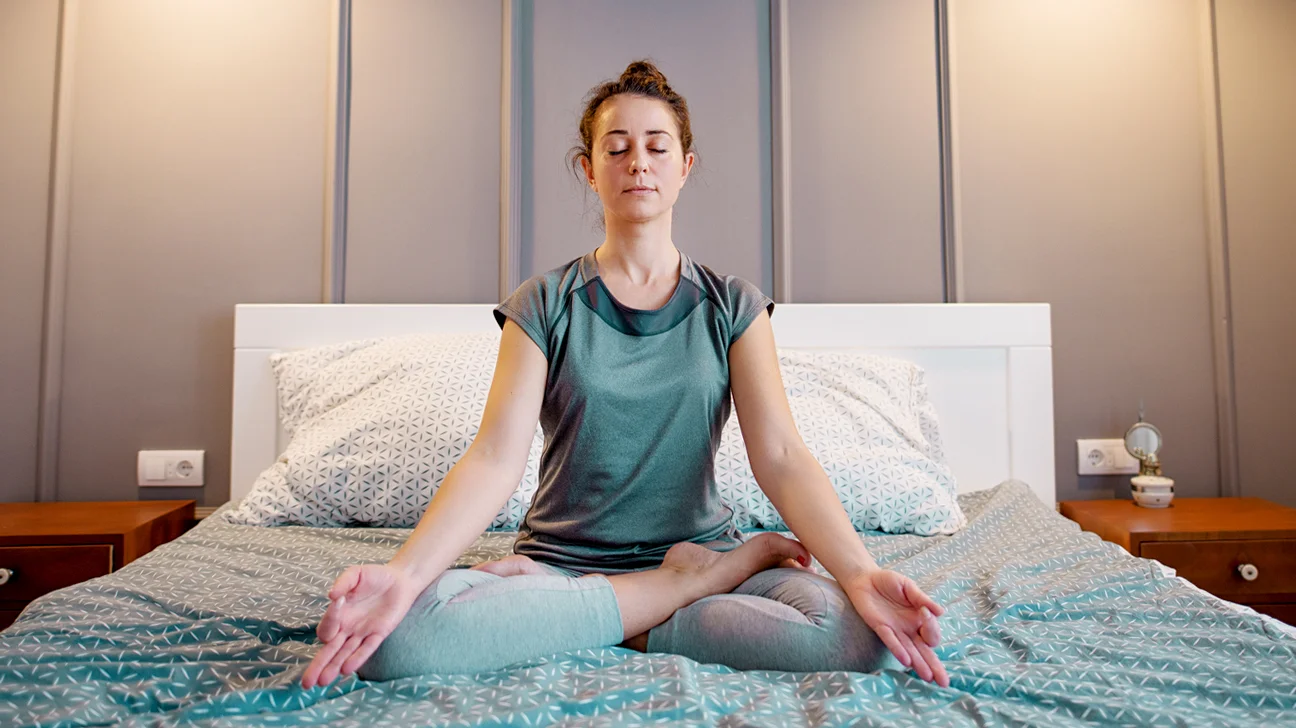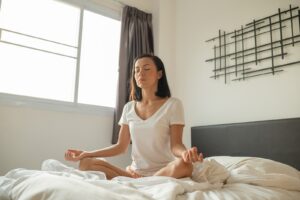Maintaining a regular sleep schedule is one of the best ways to improve the quality of your sleep and your overall health. Good sleep habits tell your body that it’s time to wind down and prepare for sleep. This helps you fall asleep faster and wake up better. Maintaining a regular sleep schedule can help you sleep better, whether you’re a night owl or have trouble sleeping. Here’s a complete guide on how to create the best nighttime routine for better sleep.
Set a regular bedtime.
Setting a bedtime and sticking to it, even on weekends, is the first step to developing a good nighttime routine. Your circadian rhythm, your body’s internal clock, works best when everything stays the same. Going to bed and waking up at the same time every night will help you sleep better and wake up more regularly.
Step away from screens
Stay away from electronic devices like cell phones, computers, and televisions an hour before bed. The blue light emitted from these screens tricks your brain into thinking it’s daytime. Melatonin is a hormone that tells your body it’s time to sleep. Blue light prevents your body from producing melatonin. Instead of scrolling through social media or watching stressful TV shows, do something relaxing like reading, journaling, or listening to soothing music.
Create a relaxing space.
Your bedroom should be a calm and peaceful place to sleep. It should be cool, quiet, and dim. Invest in blackout curtains, use a white noise machine, or spray lavender on your pillow to help you sleep. Keeping your bed clean and comfortable is very important. Soft sheets and a firm mattress can help you sleep better.
Make it a habit to relax.
Take an hour before bed to relax. Choose a few things that help you relax and do them in the same order every night so it becomes a habit. Examples of these include: deep breathing, stretching, taking a warm bath, and drinking decaffeinated green tea. When you do these things, your brain and body are telling you that it’s time to slow down.
Don’t eat too much late at night.
Avoid heavy meals, alcohol, and coffee a few hours before bed. Eating late and then having stomach pain or other issues can lead to sleep problems. If you want to eat something light, like a banana or a handful of almonds, it’s best to choose something light and easy to digest. Also, try not to drink too much late at night so that you don’t have to go to the bathroom late at night.
Mindfulness and meditation can help.
Mindfulness and meditation can help you relax and sleep better at night. Just five to ten minutes of deep breathing or guided meditation can help you reduce the stress and anxiety that keep you awake. There are many free apps and movies that can help you practice mindfulness, even if you’re new to it.
Think about the day and then let it go.
Writing in a journal or writing down your thoughts before bed can help clear your mind and prevent you from wandering off into random thoughts. For example, write down three things you are grateful for or make a to-do list for the next day. This will help you forget them. Thinking about positive things can help you relax your mind and shift your focus from stress to rest.
No stimulating activities
Avoid activities that are too exciting in the evening, such as checking work emails, having a heated discussion, or an intense workout. These substances can make you feel energized and difficult to calm down. Stay calm and relaxed when you go to sleep.
Keep it up
Developing good bedtime habits takes time and persistence. The more you do the program, the more you will benefit. Over time, your body and mind will start to associate what you do at night with sleep. This will make it easier and easier to fall asleep on your own.
Conclusion
Things you do before bed can often help you sleep better. Developing a routine every night can help your body to unwind and enjoy rest. Your ritual should be something that calms you and that you can stick to. For example, reading a book, taking a warm bath, or just sitting quietly. Believe in yourself and stick with it. You will soon notice a difference in the quality of your sleep and how you feel the next day.




